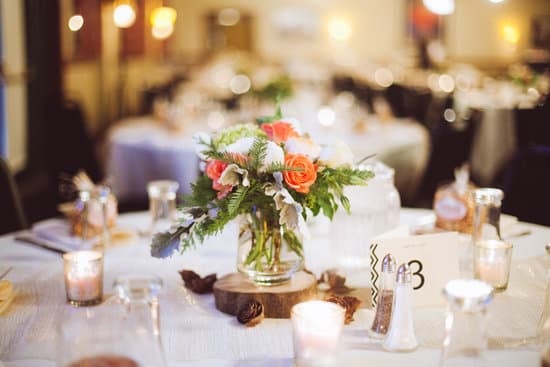How did weddings start? The history of weddings is as old as human civilization itself, with various cultural and historical origins shaping the timeless institution of marriage. From ancient rituals to modern-day celebrations, weddings have evolved significantly over time, but their fundamental significance remains unchanged. This article delves into the historical origins, evolution of traditions, cultural significance, popular customs, and the role of weddings in society.
Weddings are a universal celebration that transcends time and culture. They symbolize the union of two individuals and families, marking the beginning of a new chapter in life. While the specifics may vary from one culture to another, weddings are a cornerstone of human society across the world.
Exploring the historical origins of weddings reveals fascinating insights into how different societies have embraced this tradition over time. Understanding the evolution of wedding customs provides valuable context for appreciating their enduring significance in modern times. By examining these aspects, we can gain a deeper appreciation for the rich tapestry of wedding rituals and customs that continue to shape our lives today.
Historical Origins of Weddings
The historical origins of weddings date back to ancient times, with evidence of wedding rituals and ceremonies found in various cultures around the world. The concept of marriage and the customs associated with it have evolved over time, but the fundamental significance of uniting two individuals remains constant. Here are some key points about the historical origins of weddings:
- Ancient civilizations: Throughout history, various ancient civilizations such as the Egyptians, Romans, and Greeks had their own unique wedding traditions and rituals. These early societies placed great importance on marriage as a means of forming alliances, securing family lines, and ensuring social stability.
- Religious influence: Many modern-day wedding traditions have roots in religious ceremonies and beliefs. For example, the Christian tradition of exchanging vows before a priest can be traced back to medieval Europe, where marriage was considered a sacrament by the church.
- Symbolism in rituals: The exchange of rings, the tying of knots, and other symbolic rituals have been part of wedding ceremonies for centuries. These traditions often symbolize commitment, love, and unity between the couple.
As we look back on the historical origins of weddings, it’s fascinating to see how these ancient customs have shaped modern-day celebrations. The next section will explore the evolution of wedding traditions and how they continue to influence contemporary weddings around the world.
Evolution of Wedding Traditions
Weddings are as old as civilization itself, and the traditions and customs associated with them have evolved over time. The origins of many wedding traditions can be traced back to ancient civilizations, where rituals and ceremonies were an integral part of the union between two people.
One of the earliest recorded instances of a wedding ceremony was in ancient Mesopotamia, where a man would take a woman as his wife by purchasing her from her father. This practice laid the foundation for the concept of marriage as a contract between families.
As societies and cultures developed, so too did the customs and traditions surrounding weddings. For example, in ancient Rome, the bride would carry or wear flowers to symbolize new beginnings, fertility, and fidelity. This tradition has evolved into what we now know as the bridal bouquet. Similarly, wearing a white dress on their wedding day became popular for Western brides after Queen Victoria wore one at her wedding in 1840.
These historical origins highlight how weddings have been influenced by different cultures and time periods, resulting in a rich tapestry of traditions that continue to be observed in modern-day ceremonies. From the exchange of rings to the cutting of the cake, each ritual holds its own significance and adds to the cultural importance of weddings.
| Historical Origins | Evolutionary Process |
|---|---|
| Ancient Mesopotamia | Man purchasing woman from her father |
| Ancient Rome | Bride carrying or wearing flowers |
| Queen Victoria’s wedding | Popularizing white wedding dresses |
Cultural Significance of Weddings
When discussing the cultural significance of weddings, it is important to recognize that these ceremonies hold a deep-rooted significance in societies across the world. Weddings are not just about two people coming together in matrimony, but they also symbolize the union of families, communities, and sometimes even entire cultures. The cultural significance of weddings can be seen in various aspects of the ceremony, from the customs and rituals to the attire and cuisine.
Symbolism in Wedding Customs
Wedding customs and traditions often carry immense cultural symbolism. For example, in many cultures, the exchange of wedding rings symbolizes the eternal bond between the couple. The color of a bride’s dress can also hold cultural significance, with white representing purity in Western cultures, while red is considered auspicious in many Asian cultures. Understanding these cultural symbols adds depth to the significance of weddings.
Family and Community Involvement
In most cultures, weddings are not solely about two individuals coming together, but rather an event that brings families and communities together. This emphasis on family and community involvement highlights the importance placed on marriages as a unifying force. From traditional marriage dances to elaborate feasts, weddings serve as a means to strengthen social bonds and reinforce familial ties.
Preserving Heritage
Weddings play a crucial role in preserving cultural heritage. The practices and rituals observed during weddings are often passed down through generations, serving as a way to preserve traditions and customs unique to each culture. In this way, weddings become a means through which cultural identity is maintained and celebrated.
The cultural significance of weddings goes beyond just the union of two individuals; it encompasses deep-seated traditions, family ties, and preservation of heritage. As societies continue to evolve, it is essential to recognize and honor the rich diversity of wedding ceremonies around the world.
Modern Day Weddings
In today’s world, weddings have evolved into elaborate and meaningful events that often reflect the personalities and values of the couple getting married. While the historical origins of weddings may have been simple unions for practical purposes, modern-day weddings are more often grand celebrations with a significant economic impact. The wedding industry has experienced tremendous growth, with a wide range of professionals such as planners, photographers, florists, and caterers specializing in creating the perfect day for couples.
One notable aspect of modern weddings is the level of personalization involved. Couples now have the freedom to tailor every aspect of their wedding to reflect their unique love story and individual preferences. This includes everything from the choice of venue and décor to food and entertainment. Additionally, technology has played a significant role in modern weddings, allowing couples to live stream their ceremonies, create custom wedding websites, and share details about their big day through social media platforms.
Moreover, there has been a shift towards promoting inclusivity and diversity in modern weddings. Couples from different cultural backgrounds or those within the LGBTQ+ community are increasingly being represented in mainstream wedding media. This highlights a positive change in society’s acceptance and celebration of love in all its forms.
| Aspect | Data |
|---|---|
| Industry Growth | The wedding industry is valued at over $72 billion annually (The Wedding Report) |
| Technology | 84% of brides use social media to find inspiration for their weddings (The Knot Social Media Survey) |
| Inclusivity | 34% increase in LGBTQ+ representation in advertising since 2017 (Knot Worldwide Diversity and Inclusion Study) |
Popular Wedding Rituals and Customs
Weddings are rich in cultural traditions and customs that have been passed down through generations. These rituals vary widely from one culture to another, but they all serve as a way to celebrate the union of two individuals. Let’s take a look at some of the most popular wedding rituals and customs from around the world:
- Exchange of vows: One of the most universal wedding customs is the exchange of vows between the bride and groom. This tradition dates back to ancient times and symbolizes the promises made by the couple to each other.
- Ring exchange: The tradition of exchanging rings during a wedding ceremony is believed to have originated from ancient Egypt, where a ring was seen as a symbol of eternity. Today, this custom is embraced by many cultures as a way to signify the everlasting bond between husband and wife.
- Bridal parties: In Western weddings, it’s customary for bridesmaids and groomsmen to stand by the couple’s side during the ceremony. This tradition stems from ancient Roman law, where witnesses were required to be present at marriage ceremonies.
- Wedding feasts: Across many cultures, weddings are celebrated with lavish feasts and banquets. In some regions, such as India, it’s customary for the bride’s family to host an extravagant feast for guests as a way to commemorate the joyous occasion.
These are just a few examples of the myriad wedding rituals and customs that exist around the world. They serve as a testament to the diverse cultural significance of weddings and highlight how these traditions have evolved over time. Ultimately, they play an essential role in uniting people and creating lasting memories for couples and their loved ones.
The Role of Weddings in Society
Weddings have played a significant role in society since ancient times, serving as a unifying and celebratory event for families, communities, and even entire civilizations. Throughout history, weddings have held a special place in various cultures and have served as a means of reinforcing social bonds, transmitting cultural values, and solidifying alliances between different groups. This section will explore the role of weddings in society, delving into their cultural, social, and even economic significance.
Unifying Communities
One of the primary functions of weddings in society is their ability to bring together individuals from different families, clans, or tribes. Weddings are often seen as an opportunity for both the bride and groom’s families to come together in celebration, regardless of their differences or past conflicts. In many cultures, weddings serve as a way to forge new relationships and strengthen existing ones, leading to closer-knit communities and networks of support.
Cultural Expression
Weddings also serve as a platform for expressing cultural traditions, customs, and beliefs. From the attire worn by the bride and groom to the rituals performed during the ceremony, each element of a wedding often reflects the unique cultural heritage of the individuals involved. As such, weddings play a crucial role in preserving and passing on cultural identity from one generation to the next.
Economic Impact
In addition to their social and cultural importance, weddings also have an economic impact on society. The wedding industry encompasses a wide range of businesses including venues, caterers, florists, photographers, and more. As such, weddings contribute significantly to local economies by creating jobs and stimulating consumer spending. Moreover, weddings often involve substantial financial investments by both families involved which can have long-term implications on personal finances.
Overall,
The Future of Weddings in a Changing World
As society continues to evolve, so do the traditions and customs surrounding weddings. With advancements in technology, changes in cultural norms, and shifting attitudes towards marriage, the future of weddings is bound to see significant transformations. From virtual ceremonies to eco-friendly celebrations, the ways in which couples choose to tie the knot are likely to look very different in the years to come.
In recent years, there has been a growing trend towards non-traditional wedding venues and themes. Couples are opting for unique locations such as forests, beaches, or even urban rooftops for their ceremonies. Additionally, themed weddings that reflect the interests and personalities of the couple are becoming increasingly popular.
Furthermore, sustainability is also becoming an important consideration for many couples when planning their weddings. From choosing ethically sourced materials for decorations to reducing single-use plastics at their events, more and more individuals are prioritizing eco-friendly options for their special day. As awareness of environmental issues continues to grow, it is likely that sustainable practices will play a significant role in shaping the future of weddings.
Overall, as society continues to change and evolve, so too will the institution of marriage and the traditions associated with it. The future of weddings is sure to be influenced by a wide range of factors including technological advancements, changing social attitudes, and a greater emphasis on sustainability. Nevertheless, one thing remains constant – the timeless significance of love and commitment that brings people together in celebration.
Conclusion
In conclusion, weddings have a rich and fascinating history that dates back centuries. From ancient rituals to modern-day traditions, the institution of weddings has evolved and adapted to changing cultural, social, and religious norms. As we reflect on how did weddings start, it becomes evident that the significance of this celebration goes beyond the union of two individuals; it encompasses community, tradition, and love.
The evolution of wedding customs and rituals highlights the interconnectedness of different cultures and societies. Despite the differences in traditions around the world, weddings serve as a universal symbol of love and commitment. Whether it’s the exchange of rings, the breaking of a glass, or a traditional tea ceremony, each ritual carries its own meaning and significance within various cultural contexts.
As society continues to evolve in the face of technological advancements and shifting social norms, the future of weddings remains uncertain. However, one thing is for certain: the timeless institution of weddings will continue to endure. While trends may come and go, the essence of love and commitment that underpins weddings will remain a steadfast aspect of human connection. This enduring nature is what makes weddings such a remarkable part of our shared human experience.
Frequently Asked Questions
What Is the Origin of Weddings?
The origin of weddings can be traced back to ancient times when various rituals and ceremonies were performed to mark the union of two individuals. These ceremonies often involved religious or cultural significance.
What Was the Original Purpose of Marriage?
The original purpose of marriage was primarily for social, economic, and political reasons rather than romantic love. It served as a way to create alliances between families, ensure inheritance rights, and provide social stability within a community.
Why Did We Start Getting Married?
We started getting married as societies evolved and advanced. Over time, marriage became more closely associated with love and companionship rather than just practical considerations. Cultural and religious beliefs also played a significant role in the institution of marriage as we know it today.

I have been involved in marriages for over 20 years helping couples and singles understand more about them.





